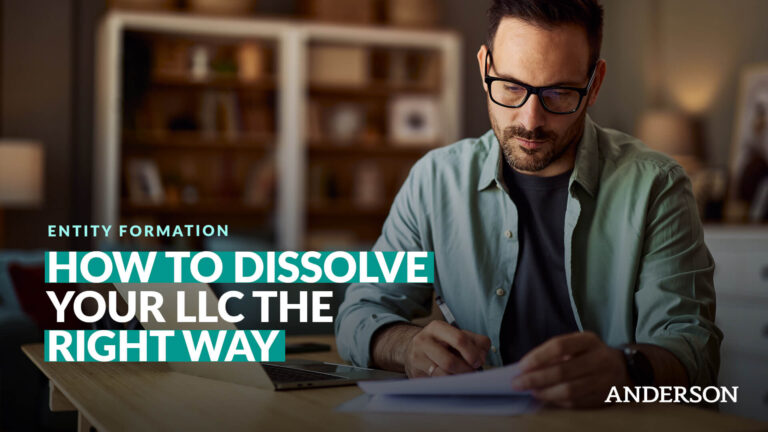Updated September 29, 2021
A family limited partnership (FLP) is a legal vehicle where family members can pool and invest their resources to run and manage a business or cash-generating assets like real estate.
Pros and Cons of Family Limited Partnership
Pros
- Lower Income Taxes
- Avoid Gift Taxes
- Maintain Asset Control
- Simple Estate Planning
Cons
- Capital Gains Liability
- Difficult to Transfer to Minors
- Limited Control for Members
What is a Family Limited Partnership?
You may have heard of a limited liability partnership (LLP). This type of arrangement involves a group of limited partners, all of whom have a vested interest in a particular asset or business. This limited partner interest is usually created through the sale of limited partnership units, which are sort of like stocks.
The LLP serves to protect all of the partners from legal liability, but there are also limitations on how much say they have in the business—which is also why they are referred to as “limited partners.” By contrast, a singular general partner is responsible for the day-to-day management of the business and also provides executive decision-making.
A family limited partnership is very similar to an LLP, but all of the members must be related to the general partner as a spouse or as parents, children, and lineal descendants (commonly referred to as grandchildren). This excludes certain family members, like cousins, and non-family members, even if they are close friends of the family. However, a trust created for the benefit of any otherwise-excluded aforementioned family members can also be listed as a limited partner in the FLP.
There are many reasons people choose to structure their business as a family limited partnership. Some of these reasons include:
Family Limited Partnership Pros
Lower Income Taxes
One of the first benefits of an FLP is the significant opportunities it presents to save on income tax. Like any business, the FLP can pay out its profits to members as long as they are above the age of 14.
Though this cutoff in terms of age might seem surprising, until fairly recently there was no cutoff, so an FLP could be used to reduce taxable income by passing it along to young children. In any case, it is still possible to pass profits along to family members, thereby reducing the taxable income of the FLP.
For example, if a family restaurant makes a million dollars annually in profits, and the general partner has brought nine other family members into the FLP, he can pay each family member $100,000, leaving himself with a $100,000 —the taxes on which will be much lower than a million-dollar profit.
Avoid Gift Taxes
Having your assets in an FLP can minimize the damages of gift taxes. The gift tax exclusion granted by the US federal government (at the time of this article) is $15,000 per gift, per year.
This means any person, even without an FLP, can give away personal or family assets of up to $15,000 per person to any number of people—without that amount being subjected to an onerous gift tax.
However, family partnership assets may be eligible for a valuation discount (sometimes called a minority interest discount) beyond that annual gift tax exclusion. In other words, even if the family assets given away total more than $15,000 per person, you may be eligible for certain tax savings afforded by an FLP.
This is because FLP assets are assessed for their fair market value for tax purposes within specific gifting contexts. A limited partnership interest in FLP assets offers very restrictive terms, especially in comparison to the general partnership interest.
A limited partner interest does not have the ability to transfer partnership interest to another person of the limited partner’s choosing. A partnership interest in FLP assets also doesn’t allow decision-making or management powers. In some instances, partnership rules may even make it impossible to surrender shares in an FLP interest. That said, minority ownership or limited partnership in FLP assets can have less value than a different type of partnership agreement—which can come in handy when it comes to tax savings.
Maintain Asset Control
Some say that family and business should not mix, while others swear by the combination. Whatever your stance may be, creating an FLP allows you to keep your assets in the family.
The general partner has control over who can be granted a limited partnership, so an FLP allows family members with a similar vision of wealth building to band together and create a business or asset legacy without having to bring in outsiders.
Moreover, the general partner will usually retain control over executive decision making, which means that he or she will not need to jeopardize their control of the business, whether it’s a restaurant, family farm, or multifamily housing complex.
At the same time, it’s important for the general partner to realize that family partnership rules do not offer liability protection for the general partner. To that end, the general partner should consider also forming a second legal entity, such as a limited liability company, for their own asset protection.
Simple Estate Planning
A general partner in an FLP can transfer ownership of the asset over time. This means that, when the general partner passes away, their assets can avoid onerous transfer and inheritance taxes because they have already been passed on to the limited partners. More specifically, the only amount included in the estate of the deceased is the value of the asset or parts of the asset transferred to limited partners at the time they were gifted.
Any appreciation after that point is not included. So, for example, if an FLP owns a farm worth $500k that increases in value over a few decades, then the general partner can gift shares of the farm while it was still worth $500,000 and only that amount will be taxable. None of the appreciation after that point will be taxed.
Family Limited Partnership Cons
There are situations where forming a family limited partnership isn’t the most strategic option. The cons of an FLP include:
Capital Gains Liability
Family limited partnerships do carry some potential tax liability, specifically when it comes to traded marketable securities like stocks.
If you have created an FLP to form a family investment company, the assets you gift or bequeath could be subject to capital gains taxes.
For example, if the FLP purchases a large number of stocks, and those are bequeathed to limited partners, these limited partners will be taxed on the appreciation.
If you are hoping to use an FLP to transfer the equity of a nest egg you’ve spent a lifetime building up, you may want to consult with a tax attorney about end-of-life planning so that you don’t include the burden of a capital gains tax with the assets you’re gifting.
Don’t assume that just because your partnership assets aren’t exclusively marketable securities that you’ll avoid your FLP being labeled as an investment partnership. There are a number of situations that can trigger FLPs being classified as investment partnerships, so it’s important to review the structure of your FLP with qualified legal counsel.
Difficult to Transfer to Minors
An FLP cannot be used to transfer ownership interest to minors under the age of 18 unless the assets in question are held by a parent or guardian. In some cases, even a limited partner may need to show the ability to contribute towards the day-to-day operations of the business or management of the asset, which can make it difficult to transfer or gift assets to minors who are away at college or unable to manage a business.
As mentioned before, children under the age of 14 cannot participate in the FLP anyway. If a large number of individuals under the age of 14 (such as grandchildren) are part of your FLP strategy, you might want to consider other legal options, like a dynasty trust.
Limited Control for Members
While the general partner retains control of executive decisions in regards to assets of the FLP, limited partners usually have no such control, legally. It’s important to be transparent about that fact with family members you encourage to buy into the FLP and know your limitations if you plan on being a limited partner.
It is easy for money to become a sore point between family members since there is naturally a high expectation of trust and accountability between people tied together by blood or marriage. At the same time, this limited control can become a benefit for tax purposes when FLP assets are gifted because the assets themselves are viewed for tax purposes to have reduced value.
How to Set up a Family Limited Partnership
Setting up a family limited partnership usually first involves creating a general partnership with limited partnership interests. These interests can then be gifted to certain family members, namely a spouse, parents, children, or grandchildren.
Sometimes a person will form an FLP not because they wish to create a vehicle for estate planning, but because they need to raise funds for a business venture.
For example, if someone wants to purchase an apartment complex that necessitates a million-dollar down payment, but they are unable to furnish this down payment, they might create an FLP with shares of a limited partnership. They would then sell these shares to family members, who would then own an economic interest in the real estate.
In this way, an FLP is sort of like a company creating shares of stock and then selling them off to raise capital. And much like shareholders, the limited partners do not have much say in running the business, but they can benefit from its profits. One could even say that common stockholders have more say in the asset they have bought into, since common shares of stock usually come with voting rights.
Is a Family Limited Partnership Right for My Business?
An FLP is a great way to generate capital for an investment while passing your estate to family members with limited taxes. However, as we discussed above, it does carry some potential liabilities.
We highly recommend consulting with a tax planning attorney to learn how to avoid common estate planning mistakes. In any case, you will likely need legal counsel to assist in setting up an FLP correctly, so you can leverage its benefits while minimizing its liabilities.
Once formed, a family limited partnership can be a great way to keep a family business in the family, whether that’s a restaurant, real estate, family farm, or anything else that involves generational wealth building.
As always, take advantage of our free educational content and every other Tuesday we have Toby’s Tax Tuesday, another great educational series. Our Structure Implementation Series answers your questions about how to structure your business entities to protect you and your assets. One of my favorites as well is our Infinity Investing Workshop.
Additional Resources:
Free Strategy Session with an Anderson Advisor
Receive a detailed risk assessment to assist in lowering problem areas that could wipe out all of your assets with one wrong move. Speak with an Anderson Professional Advisor to get your FREE Strategy Session.
Limited-Time Offer: ($750 value.)
















